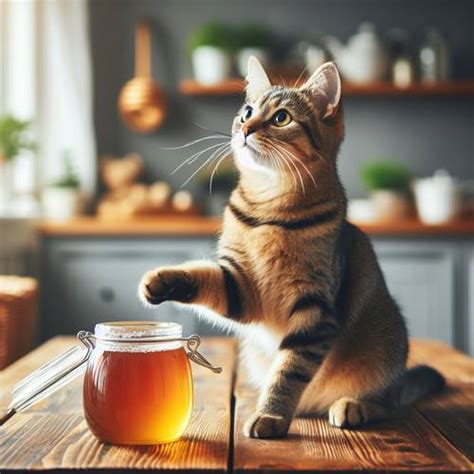Cats are known for their curious nature and love for exploring their surroundings, which often leads to them getting into all sorts of trouble. One common question that many cat owners have is whether it's safe for their feline friends to eat honey. While honey is a popular ingredient in human food and is often touted for its health benefits, it's essential to understand whether it's suitable for cats to consume.
The Importance of Understanding Feline Nutrition
Cats are obligate carnivores, which means that they require a diet rich in protein and fat from animal sources to survive. Their nutritional needs are different from those of humans and other animals, and feeding them the wrong foods can lead to serious health problems. As a responsible cat owner, it's crucial to understand what foods are safe for your cat to eat and what foods to avoid.
Is Honey Safe for Cats?
Honey is a natural sweetener that is commonly used in human food. However, it's not a necessary ingredient in a cat's diet, and it can even be harmful in large quantities. Here are some reasons why honey may not be the best choice for your feline friend:
- Digestive Issues: Cats lack the enzymes to digest honey properly, which can lead to digestive issues such as diarrhea, vomiting, and stomach pain.
- Allergies: Some cats may be allergic to honey, which can cause a range of symptoms from mild itching to life-threatening anaphylaxis.
- High Sugar Content: Honey is high in sugar, which can lead to weight gain, dental problems, and other health issues in cats.
- Risk of Botulism: Honey can contain spores of the bacterium Clostridium botulinum, which can produce a toxin that can cause botulism in cats.

Health Benefits of Honey for Cats
While honey is not a necessary ingredient in a cat's diet, it does contain some antioxidants and antibacterial properties that may be beneficial for cats in small amounts. However, it's essential to note that these benefits are not unique to honey and can be found in other ingredients that are safer for cats to consume.
If you're looking to add some natural health benefits to your cat's diet, consider the following alternatives to honey:
- Omega-3 Fatty Acids: These healthy fats can help to reduce inflammation and promote healthy skin and coat.
- Probiotics: These beneficial bacteria can help to support your cat's digestive health and boost their immune system.
- Antioxidants: These compounds can help to protect your cat's cells from damage and reduce the risk of chronic diseases.
How to Feed Honey to Your Cat Safely
If you still want to feed your cat honey, here are some guidelines to follow:
- Use Small Amounts: Only feed your cat small amounts of honey, such as a teaspoon or less per day.
- Choose Pure Honey: Opt for pure, raw honey that is free from additives and preservatives.
- Avoid Feeding Honey to Kittens: Kittens are more susceptible to digestive issues and allergies, so it's best to avoid feeding them honey altogether.
- Monitor Your Cat's Health: Keep a close eye on your cat's health and behavior after feeding them honey, and adjust their diet accordingly.
Gallery of Cats and Honey






Frequently Asked Questions
Can Cats Eat Honey Safely?
+Cats can eat honey in small amounts, but it's not a necessary ingredient in their diet. It's essential to choose pure, raw honey and monitor your cat's health after feeding them honey.
What Are the Risks of Feeding Honey to Cats?
+The risks of feeding honey to cats include digestive issues, allergies, high sugar content, and the risk of botulism.
Can I Use Honey as a Natural Remedy for My Cat?
+While honey has some natural health benefits, it's not a necessary ingredient in a cat's diet. If you're looking for natural remedies for your cat, consider alternatives such as omega-3 fatty acids, probiotics, and antioxidants.
Conclusion
While honey can be a tasty and healthy ingredient for humans, it's not a necessary part of a cat's diet. If you're considering feeding your cat honey, make sure to choose pure, raw honey and monitor their health after feeding them. It's also essential to understand the risks of feeding honey to cats and to consider alternative natural remedies that are safer and more beneficial for their health.
